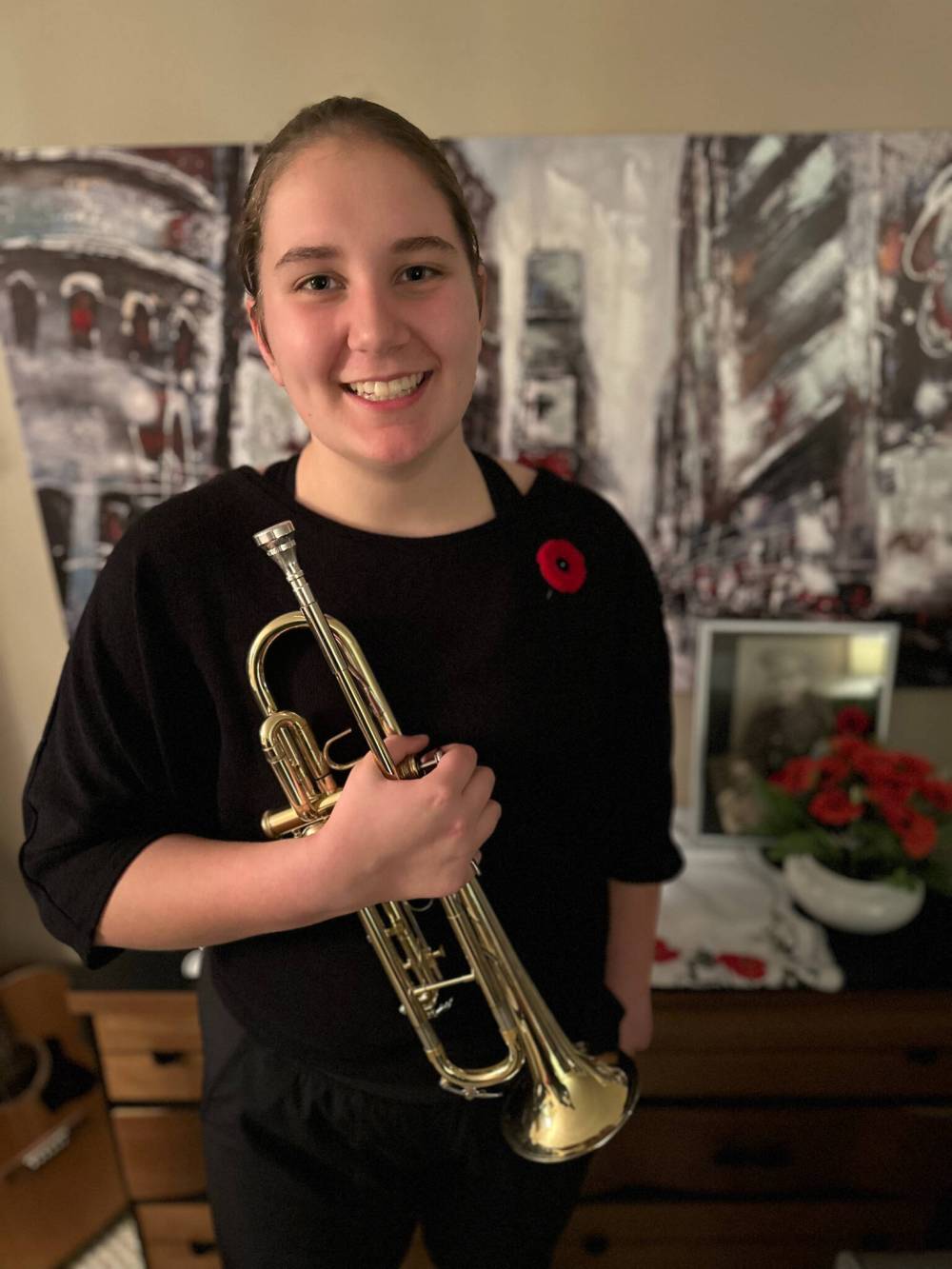Musician finds meaning in ‘Last Post’ and ‘Reveille’
Advertisement
Read this article for free:
or
Already have an account? Log in here »
We need your support!
Local journalism needs your support!
As we navigate through unprecedented times, our journalists are working harder than ever to bring you the latest local updates to keep you safe and informed.
Now, more than ever, we need your support.
Starting at $15.99 plus taxes every four weeks you can access your Brandon Sun online and full access to all content as it appears on our website.
Subscribe Nowor call circulation directly at (204) 727-0527.
Your pledge helps to ensure we provide the news that matters most to your community!
To continue reading, please subscribe:
Add Brandon Sun access to your Free Press subscription for only an additional
$1 for the first 4 weeks*
*Your next subscription payment will increase by $1.00 and you will be charged $20.00 plus GST for four weeks. After four weeks, your payment will increase to $24.00 plus GST every four weeks.
Read unlimited articles for free today:
or
Already have an account? Log in here »
Vincent Massey High School Grade 10 student Abigail Chandler has written a personal essay titled “Dissonance,” about her experience playing the “Last Post” and “Reveille” at Remembrance Day ceremonies.
Nov. 11, 11 a.m. All of Canada stops — breath held, hearts heavy, uneasy anticipation. A common thought resonates: why is there war? A minute of silence descends over the nation. Then, through the quiet, that familiar bugle call sounds.
THE ‘LAST POST’

Fifteen-year-old musician Abigail Chandler shares her thoughts and feelings about playing “Last Post” and “Reveille” at Remembrance Day ceremonies. (Submitted)
No matter how many times I perform the “Last Post,” it never gets any easier. The sweaty palms, weak knees and shaky breath flood my brain with what could go wrong. It’s a song everyone knows, making any mistake so audibly clear. Standing alone, a thousand eyes are locked on me, waiting for my next move. But, when I focus on just holding the note steady, filling the room with warm tone, my nerves slowly start to melt away. The hundreds of people in front of me slowly vanish, until it’s just me and the music. That’s all that matters right now.
MINUTE OF SILENCE
Then time stops. Everyone is packed shoulder-to-shoulder on the ground, bleachers, chairs, benches and booths. And silence, complete silence. War means something different to everyone, and in this moment we pause to reflect. A lot can happen in one minute. Someone can die, someone can be born, yet right here, in this moment, time is at a standstill. But as the minute is nearing the end the muffled whispers, small movements and stifled coughs return. The two soldiers in front of me turn around to shake my hand. Mine are clammy, but so are theirs. I feel the weight of the honour and duty to stand where I’m standing. I didn’t know silence could feel this heavy.
‘REVEILLE’
I start again, but on a happier tone than the first melody. This part is shorter. I’m almost done; the end is in sight. As I finish the piece, a major third rings out. A surprising twist — most pieces end on the tonic or dominant notes. The ending sounds unresolved, like a story without a conclusion or a sentence without a period. It leaves the audience waiting, anticipating the final note to finish the musical idea. Does it go on? Is it over? I’ve done my part, but it doesn’t feel finished. It sounds like there is more to say, but no words are left. I put the music back into my folder, lower my stand and leave. The last note evaporates into the background.
UNSETTLED
I never took the time to appreciate how the composer ends this piece. I always questioned the last note, unresolved. But I think I understand it now. The song presents the audience with an unsettled feeling that stays with them long after the note has ended. The Second World War ended 80 years ago, but the scars of that devastation still impact people today. War sadly seems to be part of the universal human experience, whether you have fought in one, know someone who did or just hear about it on the news. Our phones buzz with photos of destroyed communities, articles about recent invasions, and new political decisions that may lead us into World War Three. Remembrance Day may focus on honouring soldiers, but it also reminds us that history can repeat. We can’t bring back the fallen or erase the trauma. The word “reveille” means “to wake up,” and maybe that’s what the composer intended all along. The song’s unresolved ending isn’t just a musical choice; it’s a call to awareness, a reminder that remembrance is not about closure but about staying awake to the lessons of the past. Like that final note, we are left listening, uneasy, awake, with that lingering feeling of dissonance and the ever-present question of what’s coming next.
